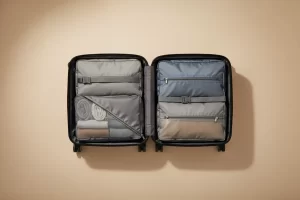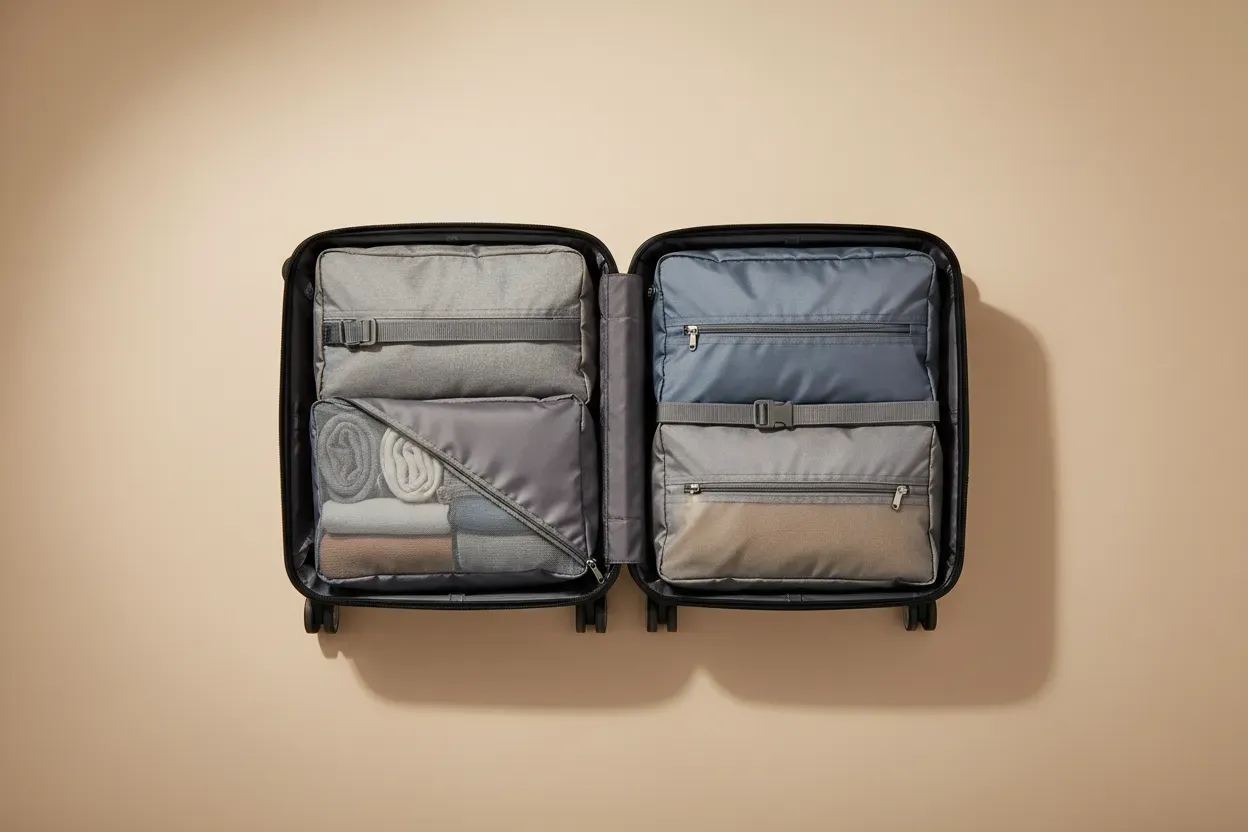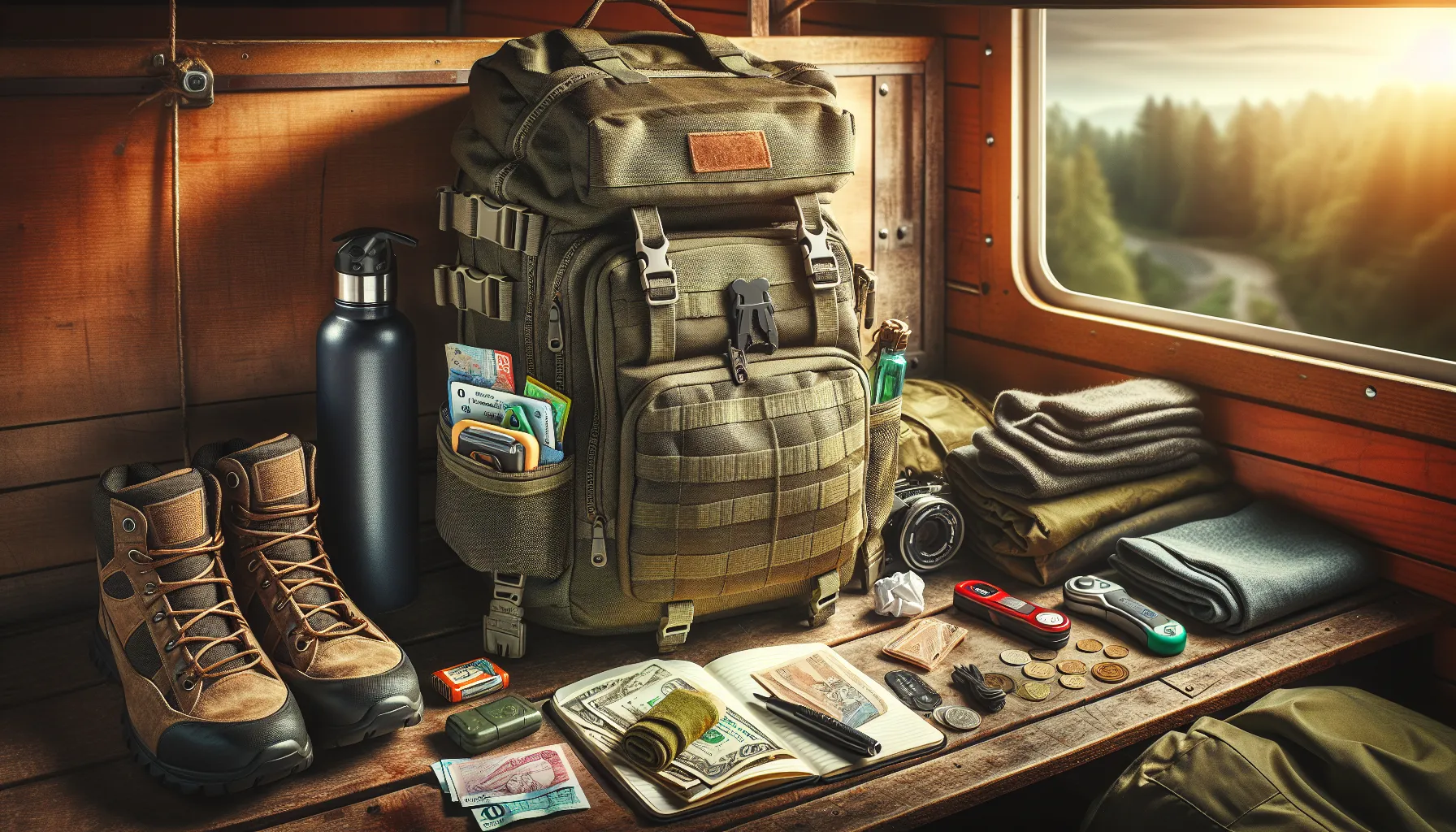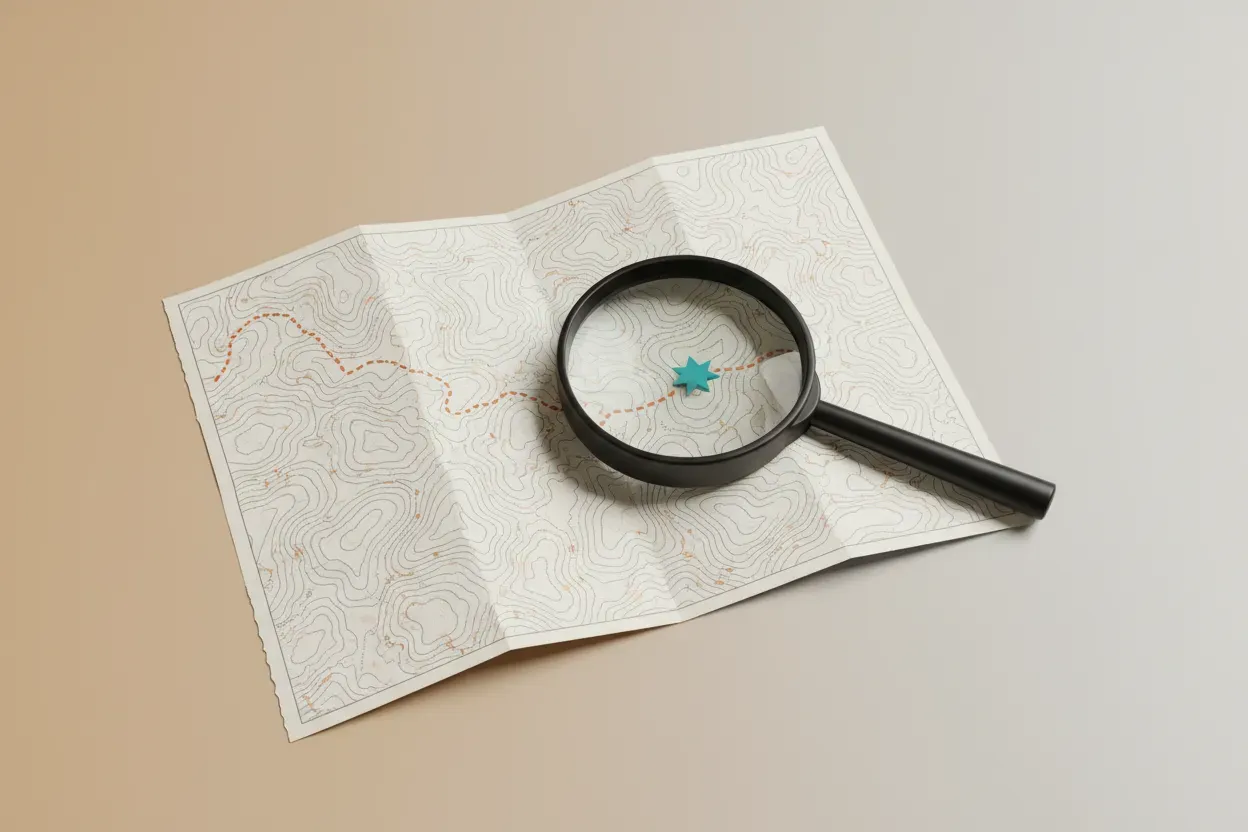7 Secrets to Becoming a More Adaptable and Resilient Explorer
This article presents valuable insights from seasoned experts on the essentials of adaptability and resilience for explorers. It strips away the complexities to offer practical tips that can be readily applied. Discover strategies that empower you to thrive in the face of unpredictability.
- Embrace the Unexpected
- Pack a Versatile Merino Wool Base Layer
- Practice Meditation and Self-Care
- Carry a Versatile Scarf or Bandana
- Observe and Engage with Your Surroundings
- Relax and Go with the Flow
- Have a Flexible Itinerary
Embrace the Unexpected
One of the best travel lessons I’ve learned is always to have a backup plan but stay flexible. Delays, closures, or unexpected changes happen, and instead of letting them ruin the experience, I try to have a few alternatives in mind.
For example, if a museum is unexpectedly closed, I’ll have another interesting spot nearby as a backup. If a train is cancelled, I’ll check for a bus or rideshare option. This mindset has helped me stay calm and make the most of every situation.
My advice to others? Embrace the unexpected. The best travel memories often come from unplanned moments–getting lost in a charming neighborhood, stumbling upon a hidden café, or meeting locals who point you to something even better than what you originally planned.
 Sarah Wilson
Sarah Wilson
Travel Blogger, Life Part2 & Beyond
Pack a Versatile Merino Wool Base Layer
The single most transformative travel tip I’ve embraced is packing a versatile merino wool base layer regardless of destination or season–it regulates temperature in both hot and cold climates, remains odor-resistant for multiple wears, and dries quickly when hand-washed in a hotel sink, which has saved me countless times from overpacking or being caught unprepared.
Beyond just packing smart, I’ve learned to build deliberate “buffer days” into my itineraries, allowing time to recover from unexpected delays or weather changes while reducing the environmental impact of rushed transportation alternatives. These buffer days often become the most memorable parts of my journeys, as they create space for spontaneous discoveries like the time I stumbled upon a small village festival in the Austrian Alps that wasn’t in any guidebook.
My advice to fellow travelers is to embrace the philosophy that adaptability isn’t just about solving problems but opening yourself to serendipitous experiences. Some of my most treasured travel memories came from plans gone “wrong” that led me to authentic local experiences I would have otherwise missed.
 Inge Von Aulock
Inge Von Aulock
Travel Advisor & Editor in Chief, Outdoorsy
Practice Meditation and Self-Care
In my years of leading travelers, I’ve learned that adaptability and resilience on the road come from great self-awareness and practice of self-care; the two secrets of good journey preservation.
Meditation is one practice that I think has changed how I travel. Try meditating as part of your daily routine, even if you can only spare a few minutes in the morning. It helps focus your mind, reduce stress, and helps you remain calm in unpredictable situations, whether that is a language barrier or unanticipated changes to plans.
Asking the right questions about your travel and your journey will greatly benefit you in the long run, and the memories you allow yourself to make will be amazingly enriching. Meditation is the gift that keeps giving, especially during travel when you might need a quick hit of mental clarity and perspective.
And also, self-awareness is key. Being attuned to your own needs, whether they include taking breaks, drinking enough water, or taking a moment of silence. This makes it easier to adapt to varying environments and experiences. It allows you to keep balanced, so you’re physically charged as well as mentally and emotionally in the right place.
I also recommend to travelers that they pay attention to the soul-nurturing sides of a trip. Take time to reflect on yourself, be in nature, or find a quiet spot to sit with yourself. These simple processes lead you to being a lot more immune to the unexpected challenges that will come your way when traveling.
 Mariana Montes
Mariana Montes
Local Tour Guide and Travel Writer, Vibe Adventures
Carry a Versatile Scarf or Bandana
Packing a versatile scarf or bandana can significantly enhance travel adaptability and resilience. This simple item, often overlooked, is more than just an accessory. It can serve as a towel, a mask against dust and pollution, or a way to offer respect in culturally sensitive areas. In the unpredictable weather of the Himalayas, a scarf can provide warmth or shade, adjusting to the elements effortlessly. For travelers exploring remote trails or bustling cities, such multipurpose items allow you to adapt to shifting conditions without overpacking. This approach equips you to handle surprises with ease, lightening your load physically and mentally.
 Balaram Thapa
Balaram Thapa
Co-Founder/CEO, Nepal Hiking Team
Observe and Engage with Your Surroundings
As the founder of Mexico Newcomers, my top travel tip is simple: look up and look into people’s eyes. I’m constantly stunned by how many visitors stay glued to their phones or fail to notice the vibrant life happening around them–the people, the customs, the unspoken social cues. If you’re in a place where local men never wear shorts in public, ask yourself why before pulling yours on. Travel isn’t about transplanting your habits into a new setting; it’s about quiet observation, cultural humility, and choosing to be present.
The advice I give is this: don’t just bring yourself–bring the most curious, open version of you. The more you notice and adapt, the more resilient you become. That shift in mindset builds bridges and earns you respect. You don’t have to be perfect–just engaged.
 Kimberly Kubalek
Kimberly Kubalek
Founder, Mexico Newcomers
Relax and Go with the Flow
I’ve learned to be more relaxed when things don’t go according to plan.
I always have this idea that when I travel somewhere, whether it’s Lisbon, which I love, or somewhere else, I think I know how it’s going to go, but it rarely goes according to plan.
You can create backup plans as much as you want, but you have to remember it’s still a vacation, so relax and go with the flow.
I’ve experienced amazing things I wouldn’t have if I hadn’t just let the city guide me around and tried to stick to a plan that just couldn’t happen.
So if something goes wrong on your next vacation, then say to yourself: “Whatever, let’s see what happens.” I still use common sense, though.
 Phillip Stemann
Phillip Stemann
Travel Enthusiast, LisboaVibes
Have a Flexible Itinerary
As a travel agent, the best tip I can offer, which has helped me become more adaptable, is having a flexible itinerary. Have backup options in mind and be open to the possibility of getting an extra day to relax at the resort if unexpected issues arise. Weather changes, flight delays and cancellations, and unforeseen hiccups during excursions or activities are bound to happen, so it’s important to stay open and understanding. While it’s natural to feel frustrated when things don’t go as planned, having an open mind and being willing to adjust, when necessary, makes a big difference. Avoid trying to plan every minute of every day, as things rarely unfold as expected. Remember, you’re on vacation–it’s about relaxing, stepping away from the daily routine, and exploring the world. Be flexible and enjoy the journey!
 Breatta Schmadeke
Breatta Schmadeke
Travel Advisor







































